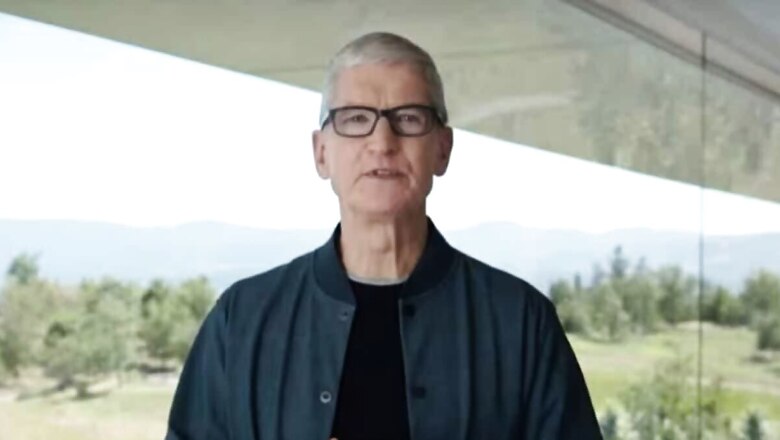
views
Apple has made a habit of charting its own path. The company has announced features that already exist in the market but give them a personal touch. We’ve seen the same happen with AI this week at the WWDC 2024, where the brand called it Apple Intelligence.
That touch got people intrigued, especially when the backbone of the technology remains the same. So, why is AI called Apple Intelligence? The company’s CEO Tim Cook was understandably quizzed about this decision, and he was clearly prepared to respond to such queries. Cook was speaking in a recent interview, where he quashed the rumours of a hidden meaning behind the use of the term Apple Intelligence by the company.
What Tim Cook Said About Apple Intelligence
“At least for me, I can tell you it wasn’t a riff off artificial intelligence. It was sort of calling it what it is. I am sure a lot will be said about it, but it’s probably not as it appears,” Cook was quoted saying in the interview by The Washington Post this week.
While Apple is not very keen to put forward the real reason for renaming AI for its own use, it is likely that Cook and his team feel that AI has become so ubiquitous, it needed a fresh approach towards its own AI strategy and vision. Apple Intelligence in many ways focuses on the core strengths of Apple which includes keeping your data private and secure.
Pushing For Privacy Remains
After all, unlike other AI models, Apple has full control on how the AI systems run on its devices and stay there. Unless, you agree to let OpenAI access data and search for answers on the internet, which opens a new paradigm for the Cupertino-based giant.

The company shared the details about its AI architecture and also the support provided by in-house AI chips that are powering the servers and keeping your data secure. Apple talked about its personal and differentiating factor in the AI race, and even though Cook didn’t feel the need to explain the reason for its own term for AI, it is clearly evident that Apple is setting a different standard for privacy in the AI landscape for the future.




















Comments
0 comment